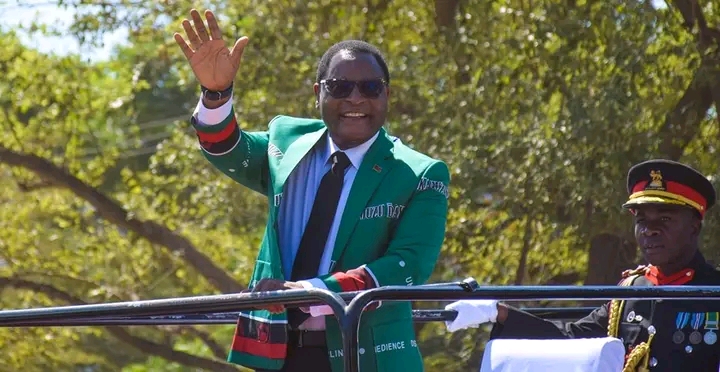
As we look ahead to the tripartite elections in Malawi on September 16, 2025, it is essential to consider the impact of President Lazarus Chakwera’s administration on the political landscape and the potential outcomes of these elections.
Chakwera, who assumed office in June 2020, has faced numerous challenges and opportunities that will likely influence voter sentiment and behavior.
Economic Management
One of the most significant factors affecting the elections will be the state of the economy.
The rising inflation rate has significantly affected the purchasing power of Malawians.
Lazarus ChakweraMany families are struggling to afford basic necessities, leading to widespread dissatisfaction with the Chakwera government’s economic policies.
The increase in prices for goods and services may lead to public unrest and a loss of confidence in the administration.
Most citizens feel that their needs are not being prioritized, and this could most likely influence their voting behavior.
The looming hunger crisis is a critical issue since some Malawians perceive that the government is unable and biased to address food security and agricultural challenges. As a result, the Chakwera government may face backlash from the electorate.
Transparency and Accountability on Saulos Chilima Plane Crash
The lack of clarity surrounding the plane crash and the subsequent inquiry raises concerns about transparency.
Citizens feel that the Chakwera government is not being forthright, and this can erode their trust in his leadership.
The perception that the recent Commission of inquiry has left more questions than answers has lead to speculation and distrust.
The public believes that the Chakwera government is withholding information or not taking the matter seriously, and this could impact their support.
Social issues
Social issues, including education, healthcare, and infrastructure development, are also critical to the electorate.
Although Chakwera’s government has made public commitments to improve these sectors, voters will be looking for evidence of progress.
The administration’s ability to address these issues effectively will be a key determinant of its electoral success. The voters are the best evaluators of Chakwera’s performance.
Voter Sentiment and Engagement
Public sentiment leading up to the elections will be influenced by various factors, including media coverage, civil society engagement, and grassroots mobilization.
Chakwera’s administration must engage with citizens and address their concerns to foster a sense of trust and connection.
High voter turnout will be essential for a democratic process, and the administration’s efforts to encourage participation will be closely watched.
Transformative Leadership
Critics argue that President Chakwera has not demonstrated the transformative leadership that many expected when he took office.
The perception of regionalism and tribalism in his administration may alienate certain voter demographics, leading to a lack of broad-based support.
Unfulfilled Campaign Promises
The failure to deliver on key campaign promises, such as creating one million jobs, can significantly impact public perception.
Voters often hold leaders accountable for their commitments, and unmet expectations can lead to disillusionment and a loss of trust.
Corruption Allegations
Chakwera campaigned on a platform of good governance and anti-corruption.
Although his administration has made strides in addressing corruption, but challenges still remain.
The public’s perception of the government’s integrity and effectiveness in tackling corruption will play a crucial role in the elections.
If citizens feel that progress has been made, they may be more inclined to support Chakwera. Conversely, any perceived failures could lead to a loss of confidence and support.
Accusations of corruption can severely damage a leader’s reputation.
If the public perceives that Chakwera has become wealthy through corrupt practices, it could undermine his credibility and lead to calls for accountability, further eroding his support.
Undemocratic Actions
The arrest of political figures like Sameer Suleman and Joseph Mwanamveka on what are perceived as political grounds raises concerns about the state of democracy in Malawi.
Such actions can create an atmosphere of fear and repression, leading to increased opposition and dissent among the populace.
Judiciary Concerns
The perception of a corrupt judiciary can significantly impact public trust in the electoral process.
If citizens believe that judges are biased or that justice is not being served, it can lead to widespread disillusionment with the political system.
This will most likely motivate voters to seek regime change, potentially affecting Chakwera’s chances in the elections.
Allegations of Electoral Rigging.
Concerns about the impartiality of the Malawi Electoral Commission (MEC) can also undermine confidence in the electoral process.
If opposition parties believe that the MEC is not neutral and that there is a risk of election rigging, it could mobilize voters against Chakwera and the ruling party.
Transparency and fairness in the electoral process are crucial for a democratic election, and any perceived bias can lead to significant backlash.
Political Alliances and Opposition
The political landscape in Malawi is dynamic, and the formation of alliances will be crucial in the lead-up to the elections.
Chakwera’s ability to maintain support within his party and build coalitions with other political entities will impact his chances of re-election.
However, the strength and unity of the opposition will play a significant role.
If the opposition can present a united front and a compelling alternative to Chakwera’s administration, it could sway undecided voters.
Conclusion
As Malawi approaches the tripartite elections in September 2025, the impact of President Chakwera’s administration will be a critical factor in determining the electoral outcome.
Economic performance, integrity of the judiciary, the perceived impartiality of the electoral commission, governance, social issues, political alliances, and voter engagement will all play pivotal roles in shaping the electorate’s decision.
Ultimately, the success or failure of Chakwera’s administration will be reflected in the ballot box, making this election a significant moment in Malawi’s democratic journey.














